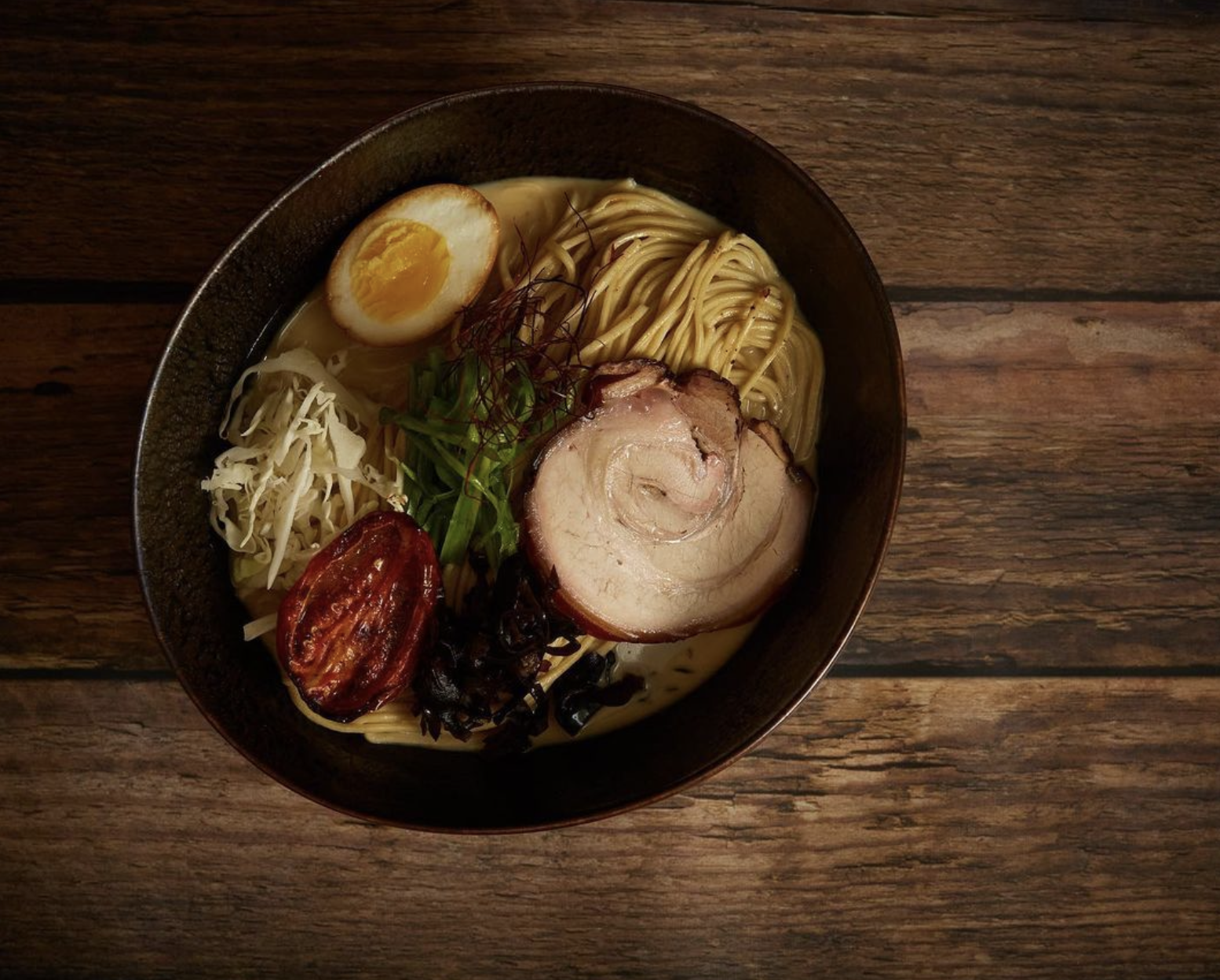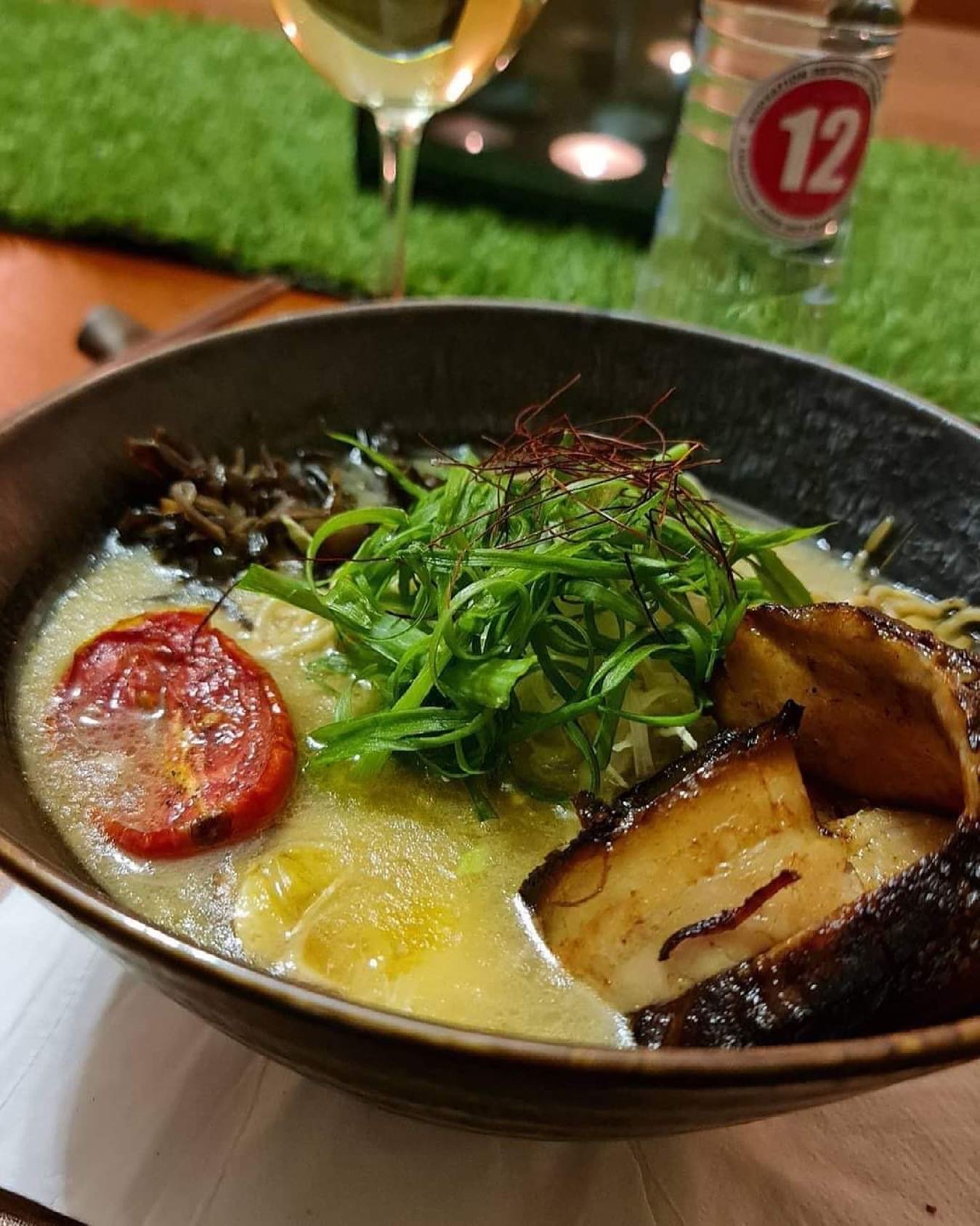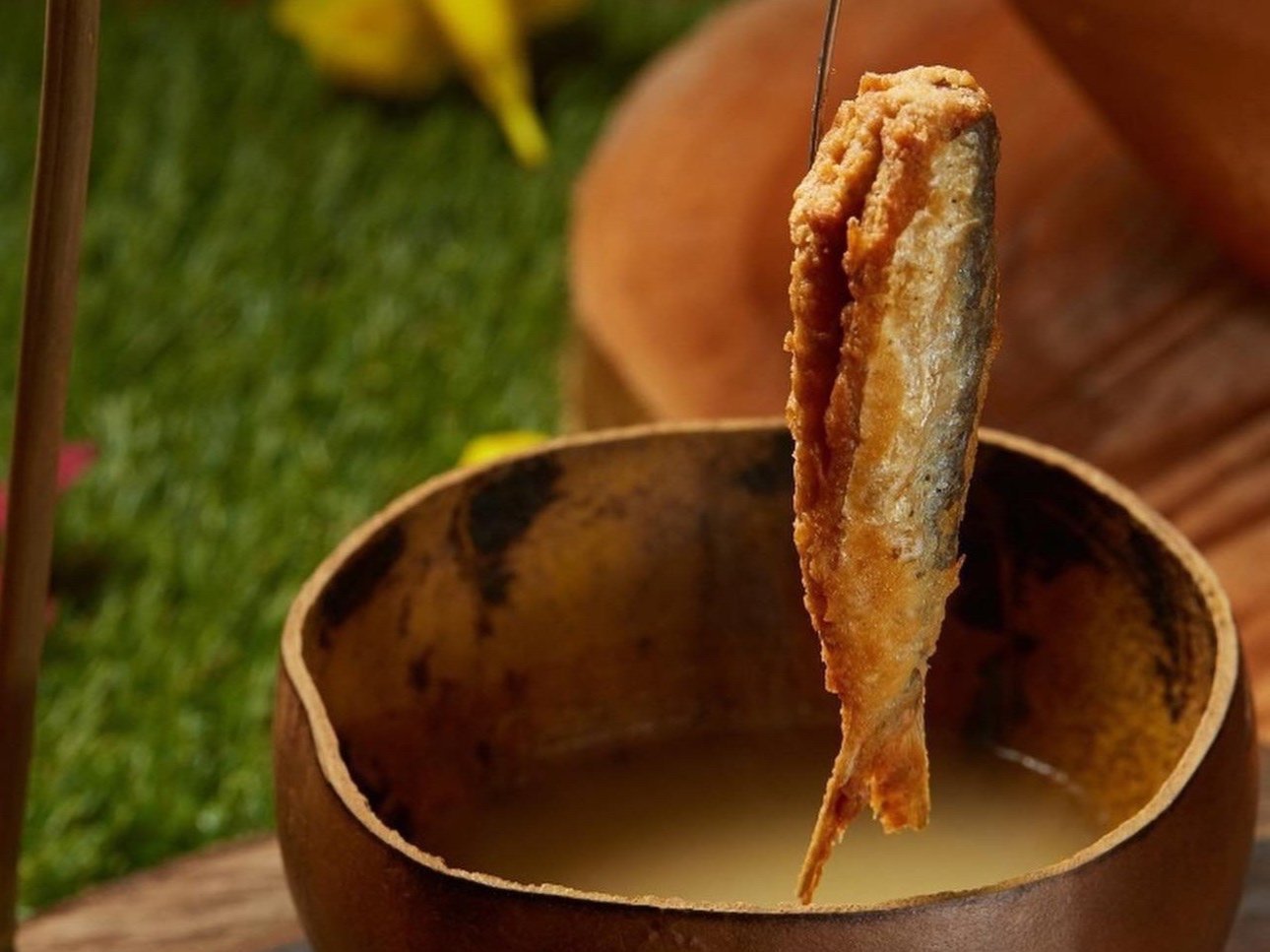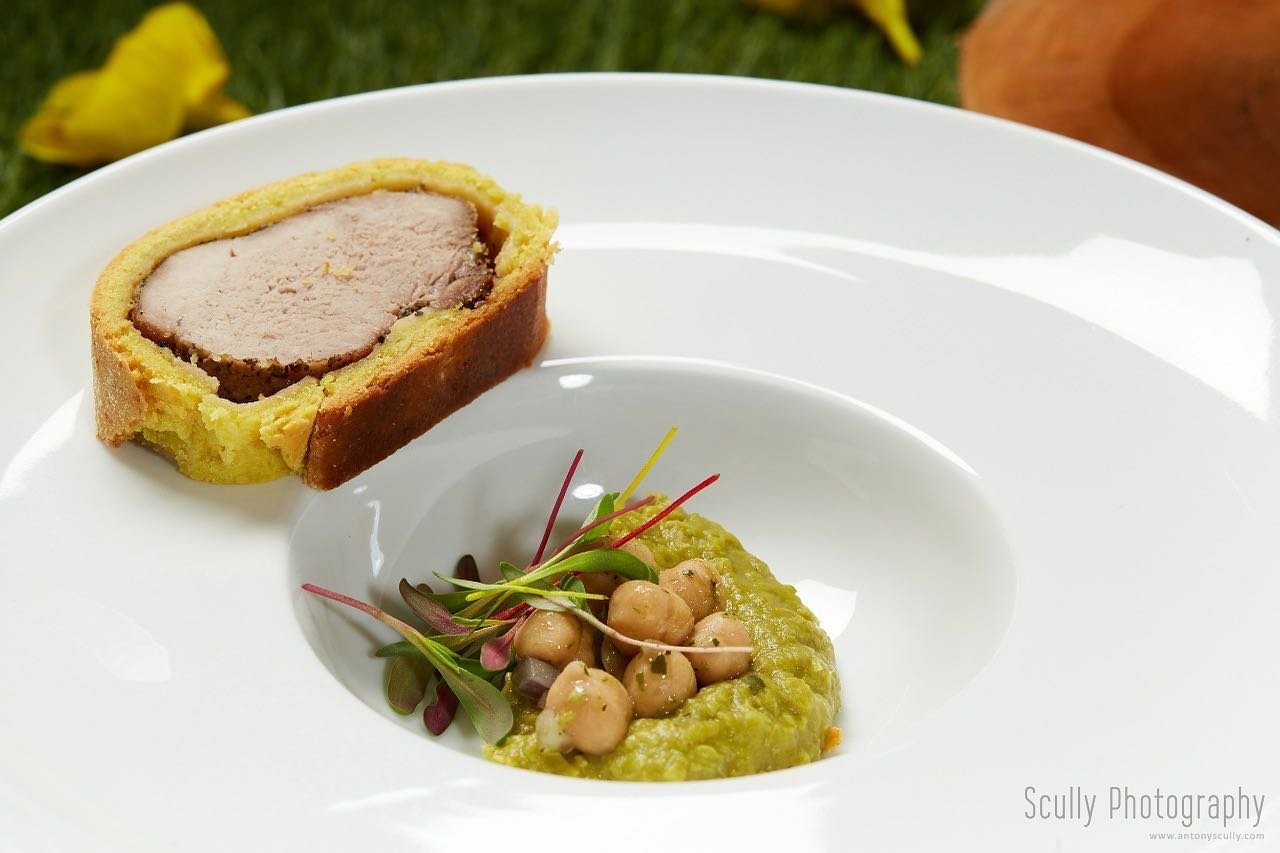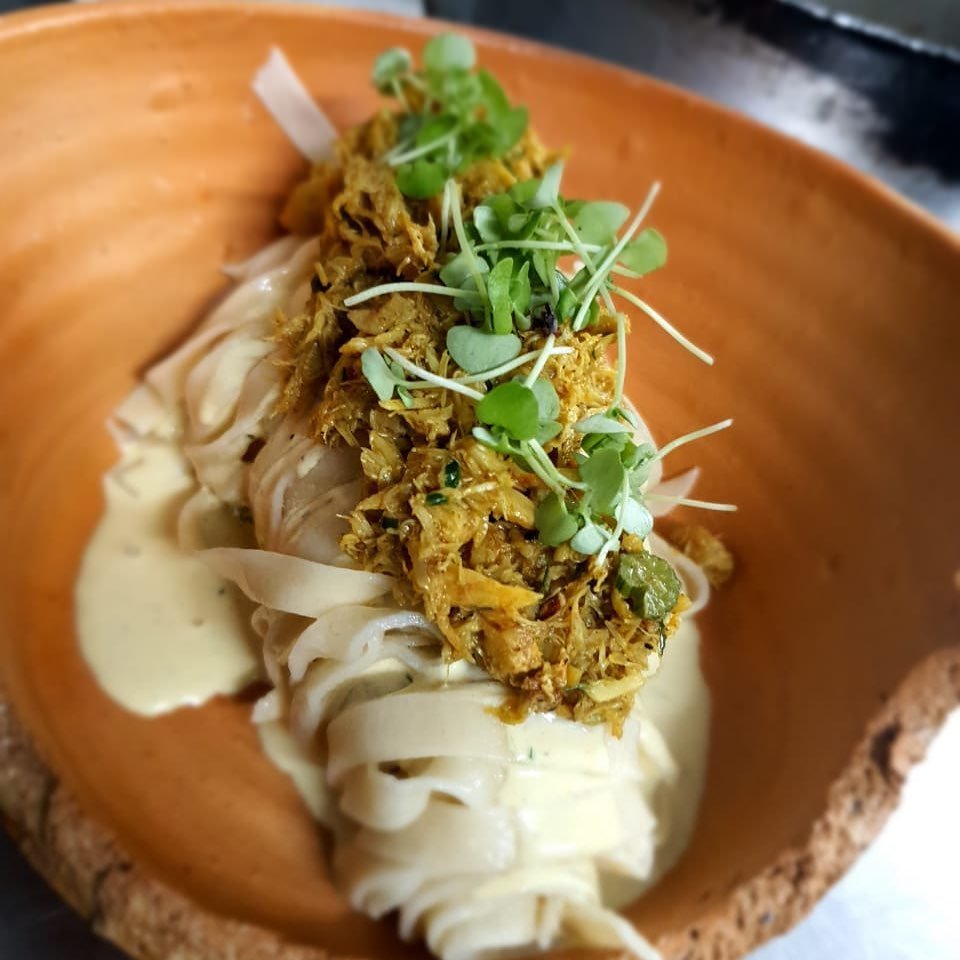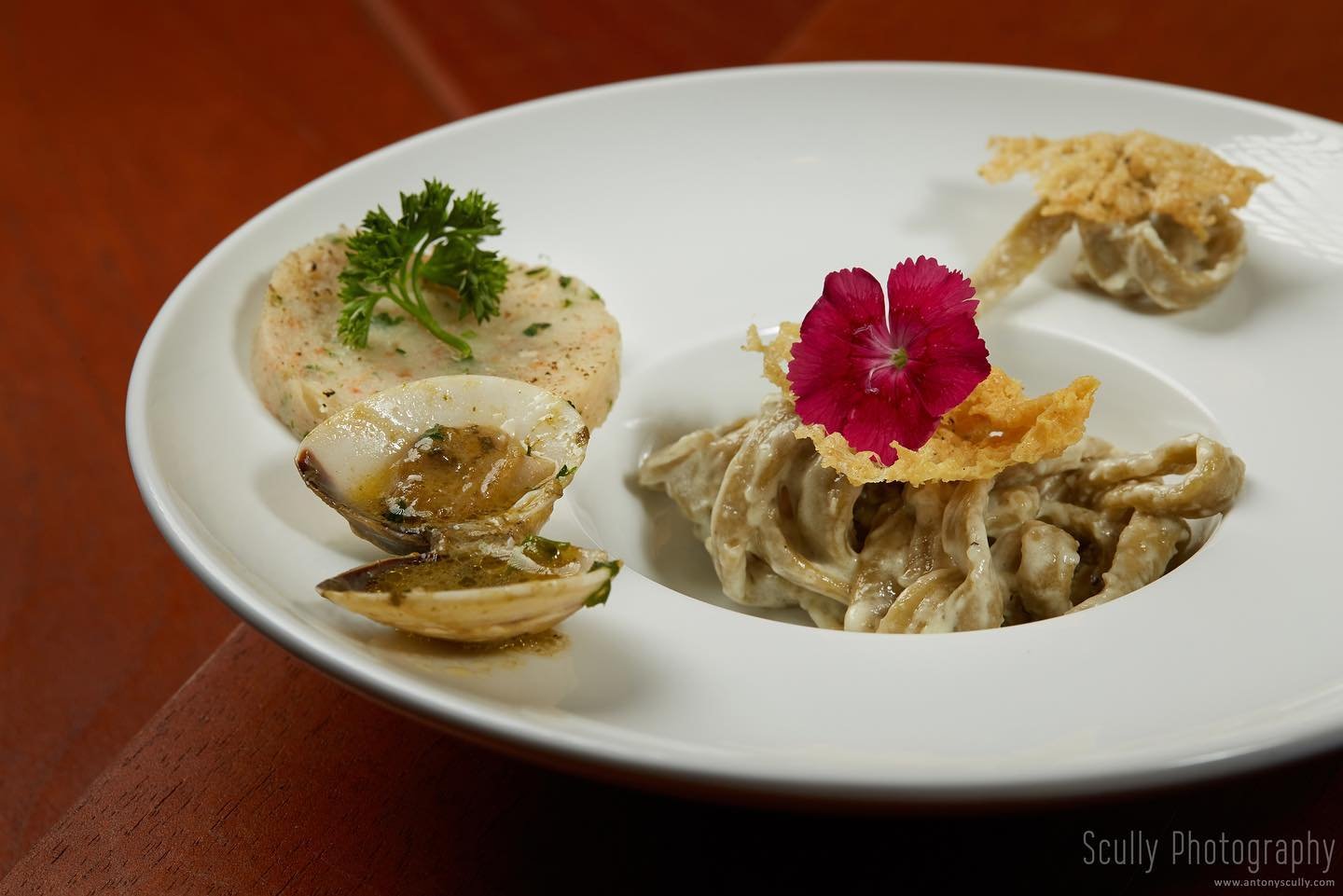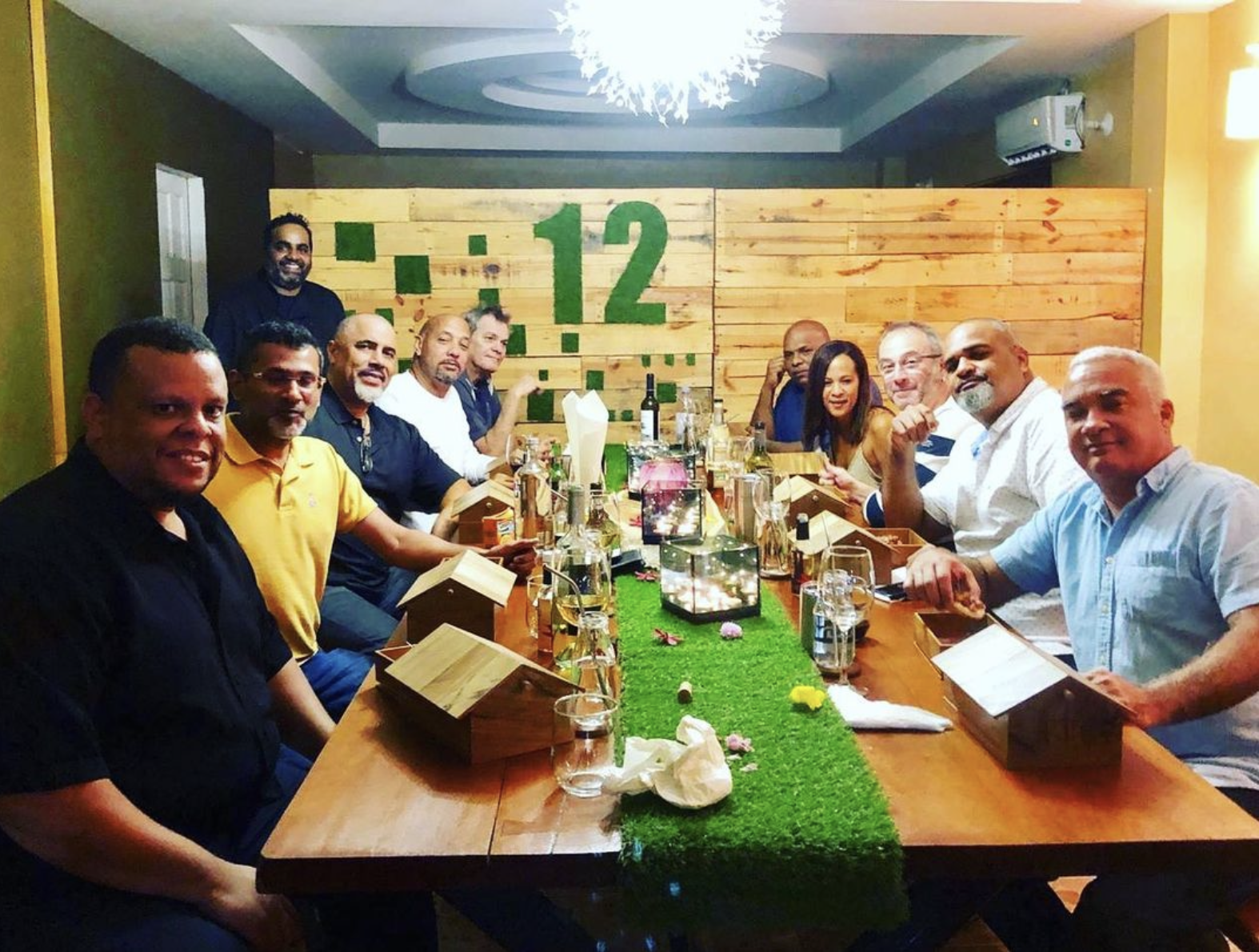Savouring the Flavours of Trinidad: An Exclusive Interview with Rishi Ramoutar.
Within our beautiful twin island of Trinidad and Tobago, the harmonious blend of food, culture, traditions, and stories help to define the essence of this vibrant Caribbean destination. Beyond our beautiful beaches and exciting festivals, the culinary legacy of Trinidad and Tobago is a testament to the diverse influences that have shaped its history.
The history of food within Trinidad and Tobago goes all the way back to the indigenous people who first inhabited the island. The evolution of cuisine in Trinidad and Tobago has been greatly influenced by the diverse races and cultures that have settled here, resulting in a vibrant culinary experience that beautifully blends flavours, techniques, and traditions from various backgrounds.
Rishi Ramoutar is a chef and the owner of a business called 12. He has become well-known for his ramen dishes and his luxurious spin on classic Trinidadian meals. Rishi is truly a fascinating individual with a personality that can be felt through this interview article.
As the majority of you know, Trinidad and Tobago is a haven for food lovers. From the bustling street food scene to the inviting aromas that come from home kitchens, Trinidad embraces food as a huge part of its identity and I believe that Rishi’s story can be inspiring for anyone looking to get into the culinary industry.
Let’s dive headfirst into the interview and explore the fascinating journey of Rishi Ramoutar!
Could you take us back to the beginning and share a pivotal moment or experience that ignited your passion for cooking and set you on the path to becoming the chef you are today?
Rishi: This is a funny story but my friend Wendell and I were at home by ourselves alone with nothing to eat, though my parents did leave money for pizza, we decided that we wanted to cook. The decision was Pelau, an ambitious first dish as none of us knew how to cook it but that’s what we were feeling for and we thought everyone would have something to eat when they returned.
We ended up making a big pot of tasteless boiled chicken and rice. At that moment my mother decided to show me how to cook. This was before the creation of Youtube.
Building on that pivotal moment, how did your Trinidadian heritage and cultural background influence your culinary journey and shape the flavours and techniques you incorporate into your cooking today?
Rishi: Growing up in a roti shop has played a major role in influencing my culinary journey. My experiences as a child/young adult have molded the way I approach food.
You can see this with my Mother-in-law sorbet.
My dad makes a great pepper sauce and my sister would always make chow super hot so I wouldn’t want it. I would still eat it and then grab some ice cubes so that dish is a merger of those two experiences.
How do you strike a balance between creating an exquisite dining experience while keeping it accessible and enjoyable for a wide range of diners?
Rishi: We don’t strike a balance, we do things our way and unapologetically.
“Only the most generous and honest at heart are able to share what moves and touches their lives. Rishi and his team do this wholeheartedly, unapologetically (like it or leave it) with their food and it shines through with every bite.”
A customer sent us that at our second-ever table and we ran with it.
How do you approach the concept of communal dining and create an immersive experience for your guest?
Rishi: Communal dining is hard to accept as Trinidadians in my opinion. We started gaining traction before the Covid-19 Pandemic. The tables are always quiet at first but we specifically put one bottle of pepper sauce on the table so one guest would have to ask another, and by the end of the night they are sharing drinks.
How do you engage and interact with guests during communal dining experiences to enhance their enjoyment and create a sense of community?
Rishi: Each dish when presented comes with an explanation as to how it was conceptualised or how it was made.
For e.g. we wanted to make the world’s most expensive pholourie so we stuffed it with shrimp or lobster. We then painted it in 24-karat gold and paired it with a caviar tamarind glaze.
What is the significance of presentation and aesthetics in your dishes, and how do you ensure they match the luxurious experience you aim to create?
Rishi: Dishes are presented in a visually stunning and interactive way. A lot of our plates are locally made or made in-house.
How do you take traditional Trinidadian dishes and elevate them to a luxurious level, while still paying homage to their roots?
Rishi: Each dish that we have a concept for is researched as far back as we can go, whether it be speaking to grandmothers, neighbours, etc. It’s then torn apart and reassembled.
Our motto states: “Innovation respects tradition but tradition does not fear innovation”
Can you describe a dish that best exemplifies the exquisite and elegant spin you aim to achieve with your local cuisine creations?
Rishi: We recently launched a lobster callaloo dish which was a play on a classic. (crab and callaloo)
Lobster medallions are wrapped in dasheen leaves and then steamed in highly-flavoured coconut milk.
The dish is served with broth and a rice mar cracker and garnished with callaloo powder.
How do you create a sense of storytelling through your menu and dishes, taking guests on a culinary journey that connects them to Trinidadian culture?
Rishi: It’s really nerve-racking for me to speak publicly but throughout the dining experience I’m explaining something I know. I’m explaining my life experiences and my journey.
What inspired you to explore the fusion of ramen and Trinidadian cuisine, and what unique opportunities do you see in this combination?
Rishi: My first time trying ramen in New Jersey was mind-blowing. It was simple, exquisite and flavourful.
I wanted more and there weren’t any good options locally.
My wife said, “ent you is a chef, make it if you want it.”
I always tell people that ramen is like doubles, each region of Trinidad has different versions just like the different regions of Japan have a different style of ramen. This is just our version of ramen.
What role does creativity play in your culinary process, particularly when crafting ramen dishes?
Rishi: We are not yet exploring the creative side of ramen to be honest, it’s something new and different from what we would know as ramen.
What is the vision for the future of your culinary endeavours?
Rishi: The future for us is to open a Trinbago restaurant in New York and hopefully gain a Michelin star.
As we conclude this interview, do you have any words of wisdom or advice for aspiring chefs or food enthusiasts who are eager to explore the wonderful world of Trinidadian cuisine?
Rishi: Never settle, never back down, no idea is a bad one. Never let the keyboard warriors deter your vision and always reach out to people for advice.
In closing, I would like to give a heartfelt thank you to each and every one of you who decided to take time out of your day to check out this interview. It truly means the world to us. Your engagement and support are never taken for granted and inspire the team to continue bringing insightful content.
Rishi can sometimes be found at 139 Woodbrook Yard selling his famous ramen bowls and he also has his chef’s table/supper club in Arima, Trinidad.
His Instagram page can be found here
I encourage everyone to share their thoughts and opinions in the comment section below, as your perspectives enrich the conversation and help to create a vibrant community.
